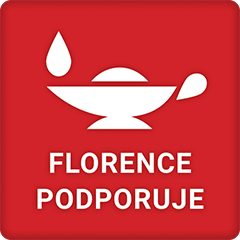


Číslo 2 / 2021
Nurses at the front line of COVID-19 – roles, responsibilities, risks, and rights
Nurses have critical roles and responsibilities during the COVID-19 pandemic.
They will continue to be at the front line of patient care in hospitals and actively involved with evaluation and monitoring in the community. Nurses have to ensure that all patients acquire personalized, high-quality services irrespective of their infectious condition. They will also engage in planning for anticipated COVID-19–related outbreaks, which increase the demand for nursing and healthcare services that might overload systems. Moreover, nurses must maintain effective supply and usage of sanitation materials and personal protective equipment and offer screening information, confinement guidelines, and triage protocols based on the latest guidance. A global pandemic needs strong nursing staff engagement in clinical management, awareness and knowledge exchange, and public safety.
Nurses are now actively involved in COVID-19 interventions, and they will remain key players in stopping the pandemic with adequate assistance. Thus, they must be provided with a healthy work environment to empower their efforts to control and manage the outbreak. Such a work environment should be a judgment-free atmosphere for staff, where they will feel free to comment on accidents such as exposure to body fluids, other infection control risks, or reports of abuse, and to take prompt follow-up action such as providing counseling for staff members. First and foremost, occupational safety is key to nurses’ work during COVID-19, as they are face-to-face with danger on a daily basis. The overarching duty of nurse leadership will be to ensure that the appropriate prevention and security steps are taken to reduce the dangers of the workplace. In this respect, it is important that hospitals have appropriate infection control procedures and personal protective equipment (masks, gloves, goggles, gowns, hand antiseptics, soap and water, and cleaning materials) in ample amounts for personnel who care for suspect or verified COVID-19 patients. Nursing supervisors should offer knowledge on workplace security, in addition to instruction and guidance regarding infection prevention and control and how to properly don, doff, and discard personal protective equipment. In this regard, staff members should also be guided on how to carry out regular self-assessments, and directed on how to follow quarantine or isolation measures, when indicated, to protect them, their families, and their community, as well as to safeguard their mental health and well-being.
Slovníček
to acquire – získat, nabýt čeho; osvojit si; pořídit si, koupit si
irrespective of – bez ohledu na, nehledě na
to engage – angažovat se
outbreak – propuknutí, vypuknutí
to overload – přetížit, příliš naložit, zavalit
confinement – izolace, separace; omezení; vězení; slehnutí, porod
triage – triáž, třídění pacientů podle naléhavosti
awareness – povědomí
intervention – zásah, zákrok, intervence
thus – a tak, tudíž, tedy
to empower – zmocnit, oprávnit koho k čemu
judgment-free – bez odsuzování
first and foremost – především, v první řadě
overarching – všezahrnující
goggles – ochranné brýle
gown – operační, ochranný plášť
ample – dost; prostorný; bujný
to don – obléci si, nasadit si
to doff – svléci, sundat, odložit; sejmout; smeknout
to discard – vyhodit, odhodit, odložit; zavrhnout
to carry out – vykonávat, provádět; splnit; realizovat, uskutečnit
to safeguard – zabezpečit, zajistit; chránit
Source: Fawaz M, Anshasi H, Samaha A. Nurses at the front line of COVID-19: roles, responsibilities, risks, and rights. Am J Trop Med Hyg 2020; 103(4): 1341–1342. doi: 10.4269/ajtmh.20-0650.
Další články v tomto čísle
- Linka kolegiální podpory pro pracovníky ve zdravotnictví – SPIS
- Editorial
- Kampaň Nursing Now v České republice
- Rozhovor s Mgr. Bartoníčkovou
- Následná intenzivní péče a dlouhodobá intenzivní ošetřovatelská péče jsou mostem mezi akutním ohrožením a návratem k životu v odpovídající kvalitě
- Výživa dětí
- Jednotka intenzivní a resuscitační péče pro novorozence – péče o „křehké bojovníky“
- Obecné principy správně prováděné inhalační techniky a chyby s ní spojené
- Raritní diagnóza – multirezistentní tuberkulóza ucha
- Covid-19 a duševní poruchy, část II











